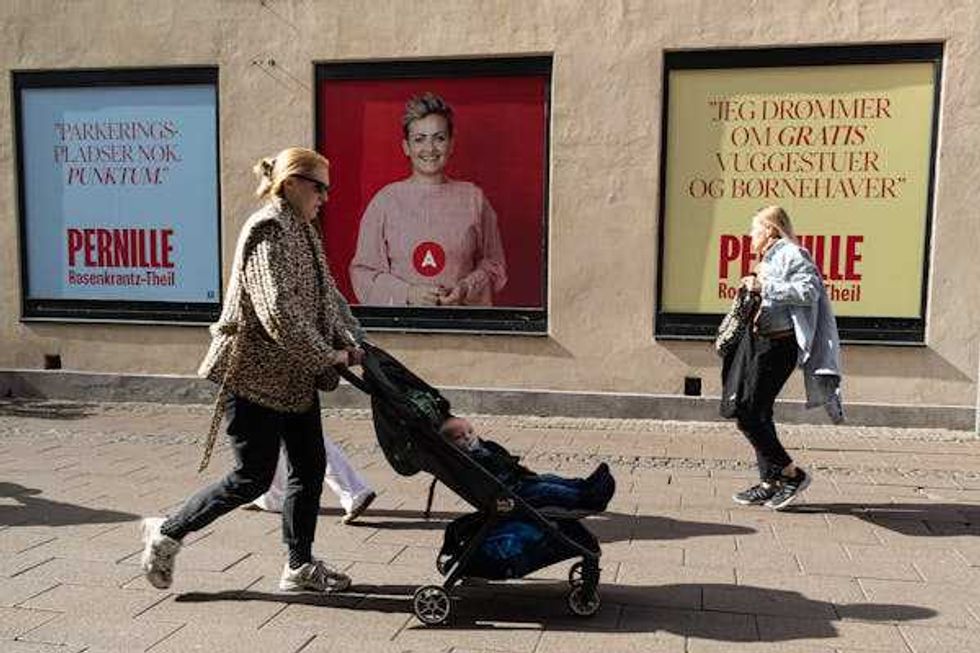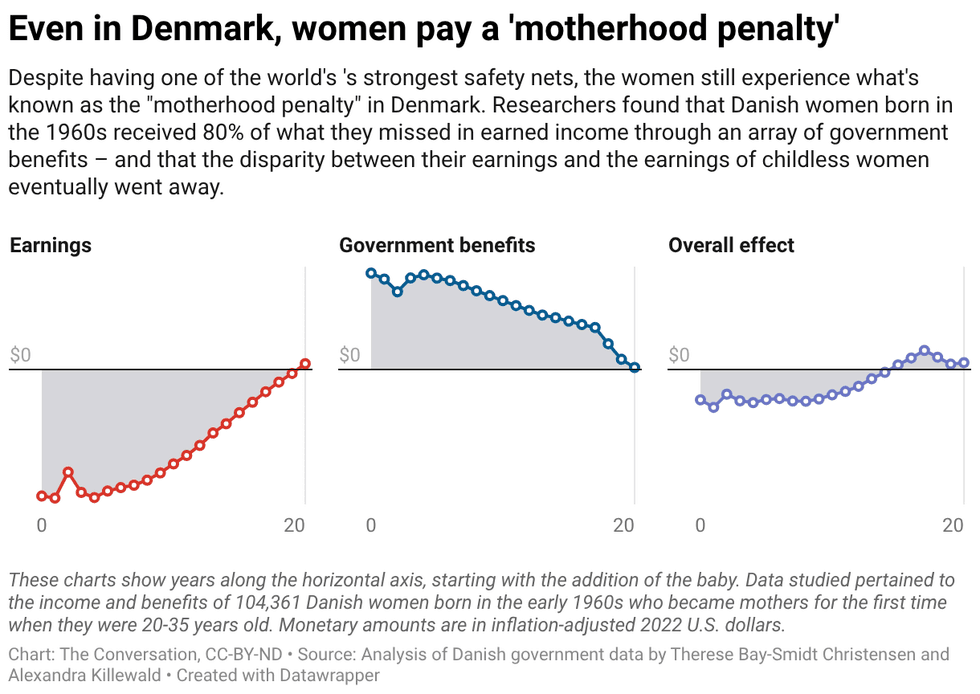Offering parental leave for new fathers could help close the gender gap, removing the unfair "motherhood penalty" women receive for taking time off after giving birth. However, a new study finds that parental leave also has a pay gap. Men are less likely to take time off, however, when they do, they're more likely to get paid for it.
A survey of 2,966 men and women conducted by New America found that men are more likely to receive paid parental leave. Over half (52%) of fathers had fully paid parental leave, and 14% of fathers had partially paid parental leave. In comparison, 33% of mothers had fully paid parental leave and 19% had partially paid parental leave.
RELATED: In America, staying pregnant forever is easier than getting time off work
Women are more likely to accept unpaid parental leave, partly because they need physical recovery time. Forty percent of women said they had to take unpaid parental leave, while only 28% of men said they took unpaid parental leave. In other words, men aren't taking time off unless they're getting paid for it. It ties into the current cultural expectations of men being the "breadwinners" and women being the "caregivers."
Money is a factor in why men aren't taking time off work after the birth of a child. Eighty seven percent of respondents said that money was the top reason why men didn't opt to go on parental leave. However, both men and women reported an equal need for paid parental leave, with 30% of respondents of either gender stating they need parental leave. "The central theme of this report is that men and women both want to take leave and men are less likely to take it," said Amanda Lenhart, deputy director at the Better Life Lab at New America, who worked on the report told the Huffington Post.
RELATED: Men get increasingly stressed if their wives earn 'too much' money, study says
The survey didn't discuss how long the parental leave was, however other research has found that men tend to take shorter absences from work. A study conducted by the Pew Research Center found that the average parental leave for men is one week and 11 weeks for women.
New America recommends fixing the problem by changing the culture. "American values around men and caregiving have evolved tremendously in recent decades," the report's authors write. "It's time for our policy structures and work culture to catch up with them." According to the U.S. Bureau of Labor Statistics, only 17% of companies offer paid parental leave, and 89% of companies offer unpaid parental leave. By changing the way we treat fathers, we'll also be changing the way we treat mothers.
















 A high school senior shows how to unlock a magnetic pouch that holds her smartphone at University High School Charter in Los Angeles in March 2025.
A high school senior shows how to unlock a magnetic pouch that holds her smartphone at University High School Charter in Los Angeles in March 2025. An eighth grader unlocks her cellphone from a pouch at Mark Twain Middle School in Alexandria, Va., in March 2025.
An eighth grader unlocks her cellphone from a pouch at Mark Twain Middle School in Alexandria, Va., in March 2025.
 Gif of a mom wiping her child's dirty face via
Gif of a mom wiping her child's dirty face via 
 A woman holds a family member's hand in the hospitalCanva
A woman holds a family member's hand in the hospitalCanva A bird flying across the sky under the sunCanva
A bird flying across the sky under the sunCanva
 The ‘motherhood penalty’ is largest in the first year after a mom’s first birth or adoption.
The ‘motherhood penalty’ is largest in the first year after a mom’s first birth or adoption. 


 (LEFT) Film premiere at ArcLight Theatre Hollywood; (RIGHT) LaNasa signing autographs at TIFF.thepaparazzigamer/
(LEFT) Film premiere at ArcLight Theatre Hollywood; (RIGHT) LaNasa signing autographs at TIFF.thepaparazzigamer/  Radical acceptance.Photo credit:
Radical acceptance.Photo credit: 
 Scott Galloway in Barcelona in 2025.Photo credit: Xuthoria/
Scott Galloway in Barcelona in 2025.Photo credit: Xuthoria/  Resting in the shade of a tree.Photo credit:
Resting in the shade of a tree.Photo credit:  Two people thinking.Photo credit:
Two people thinking.Photo credit: 